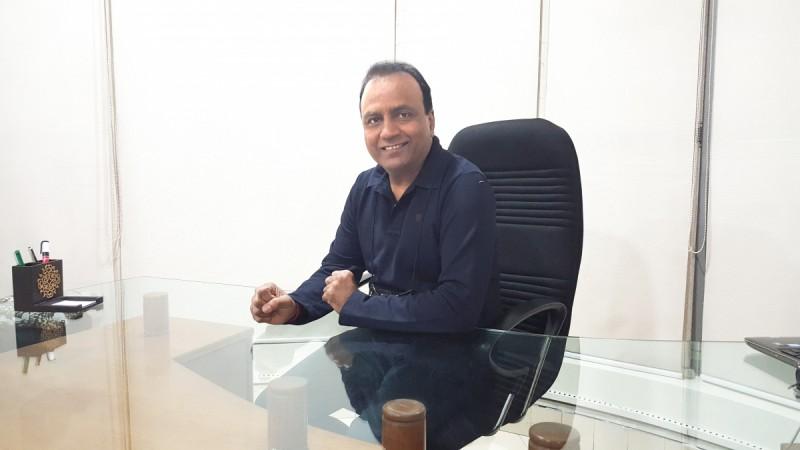
In the year 2016, startups went through a real rollercoaster ride.
The year started with the Startup Indian Policy being announced by Prime Minister Narendra Modi. The policy gave startups a tax holiday for three years, as well as the implementation of various fund-raising schemes, and even allowing startups to shut-down quickly if they didn't work.
US H1-B visa curbs: Could this be the boost Indian tech startups have been waiting for?
This was soon followed by the DIPP rules for e-commerce that cut down on discounts. The move resulted in a significant dip in business for e-commerce portals, which eventually picked up in September thanks to the start of the festive season. Flipkart and Amazon were running neck-and- neck during the Sale season.
Ola and Uber have also been locked in a titanic battle -- and various state governments who want to regulate cab aggregators. The year also saw the 'end' of surge pricing by cab aggregators.
The RBI opened up external commercial borrowing for startups to borrow up to $3 million in convertible currency, opening yet another avenue to raise funds.
Towards the end of the year, demonetization hit the country, affecting most business and markets in general. Most startups recorded a drop in business by a minimum of 15%, while Fintech startups saw a huge growth.
February is the time that most startups will be back to the level of business they were before demonetisation. It's also the time the Budget, will be announced by Finance Minister Arun Jaitley.
The Budget will set the tone for startups 2017, in terms of investment, as well as their businesses in general. Startup founders spoke to International Business Times about what they need from the finance minister.
'Use the credit guarantee scheme to bring banks and NBFCs on a level playing field'

Sashank Rishyasringa, Co-founder and Managing Director, Capital Float
Fintech startups have benefited from demonetization, as this has further fueled the growth of digital lending, e-wallet usage, and other payment technologies. In the process of creating a cash-free economy, we expect the budget to incentivize digital payments and provide for ample enabling infrastructure; this will encourage SMEs to adopt digital finance channels and become a part of the formal financing ecosystem.
More and more consumers are opting to swipe their cards and use e-wallets to purchase goods and services.
As SMEs become more proficient with electronic payment systems, this is an opportunity for Fintech firms to bring these SMEs into the formal lending ecosystem.
On the tax front, the expectation from the budget is for the government to reduce personal income tax and corporate tax rates by revising the tax slabs.
By revisiting corporate tax slabs, there is less incentive for tax evasion, and this will push the economy towards digital money.
Reducing personal tax slabs, will drive consumer spending and hence the economy. Also, the implementation of GSTN can create digitization of invoicing across the country by enabling easy filing of returns and tax payments.
Finally, we expect the budget to use the credit guarantee scheme to bring banks and NBFCs on a level playing field and to continue boosting programs like Startup India"
'Simplification of processes across government infrastructure will be the key to success'

Aniketh Jain, CEO & Co-Founder of Solutions Infini
The upcoming budget is crucial to honest taxpayers, and we look forward to a low taxation system, which will simultaneously promote a robust digital ecosystem.
Moreover, the government should simplify the tax regime for ITs and startups to foster innovation and boost a healthy start-up environment in the country.
Also, the union budget 2017-2018 should focus on digital inclusion across industries.
Simplification of overall processes across all government infrastructures will be key for the success of India and I believe they should ensure that sufficient budget is allocated for the same.
'Address crowded metros' rampant urbanization in the past, by bringing about planned development of a global standard'

Rajiv Vij, MD and CEO, Carzonrent.com
On various occasions the government has spoken about its strong agenda around 'Smart Cities'. It will be a welcome step on the Finance Minister's part to spell out specific initiatives to be implemented during the course of the year along with related budgetary allocations and measures to address crowded metros' rampant urbanization in the past, by bringing about planned development. These should match global standards of modern cities in developed economies. This will bode well for the estimated $150 billion foreign investment the sector needs.
The major concern in the development process is inadequate infrastructure, congested roads, parking problems and increasing pollution levels, where the solution lies in the introduction of a shared economy in urban mobility, complemented by technology to encourage change in car-ownership patterns.
This can remove 25 on-road cars with one car – thus reducing traffic woes and easing pressure of creating parking infrastructure for an exploding population of automobiles, owing to improving economic profiles of households.
Introduction and clarity of policy and regulatory framework in urban car rental services' formats, like self-drive/car-sharing will help the cause, and also encourage investment in the segment. Allowing private car owners to share their cars with others using car sharing platforms and removing inter-state entry tax on cars/taxis will be welcome steps.
'GST is one of the best things to happen to B2B e-commerce; its early implementation should spur the growth of SMEs'

Sunil Kumar Gupta, Founder and Director, ExportersIndia.com
With the demonetization drive and digital push, it has dawned on SMEs that shifting their business online is the need of the hour and they are looking ahead expectantly to the upcoming budget.
The government's intention of lowering Corporate Tax to 25% announced in FY-16 raised hopes for a further plunge this year, anticipating a drop of up to 18%, including all surcharges and cess with withdrawal of all tax incentives, concessions etc.
This will not only boost the overall tax revenue and lead to job creation, but also turn India into an attractive international investment destination.
With cashless economy and the given trends of incentivising cashless transactions the focus, it seems that more such schemes encouraging digital payments in FY-17 may be announced that are sure to set cash registers ringing for online businesses.
GST is one of the best things to happen to B2B e-commerce; its early implementation and addressing issues related to tax collection at source, treatment of refunds and cancellations etc, should spur the growth of SMEs.
Additional measures to strengthen government initiatives such as 'Make in India', 'Start up India' and 'Skill India' is sure to be a consideration and will boost the growth of entrepreneurial SMEs.
'Banks need to have a policy in place for startups. Apart from help in opening accounts, there isn't anything on offer'

Vishwavijay Singh, Co-founder, SaleBhai.com
We still have to see proper implementation of the slew of initiatives announced in the last Budget session. While a tax holiday of not less than five years would help startups, even the three-year relaxation for those set up between April 2016 and March 2019 is underutilised because of the tedious registration process.
I feel the government also needs to set aside indigenous funds to support the startup ecosystem in the country, and decrease its current dependency on foreign funds.
Another much-needed change is required in the banking sector. Both private and government banks need to have a policy in place for startups. Apart from help in opening accounts, there isn't anything on offer.
We hope to see some dramatic changes and concrete steps being taken to help startups, especially e-commerce, from the upcoming Budget.








